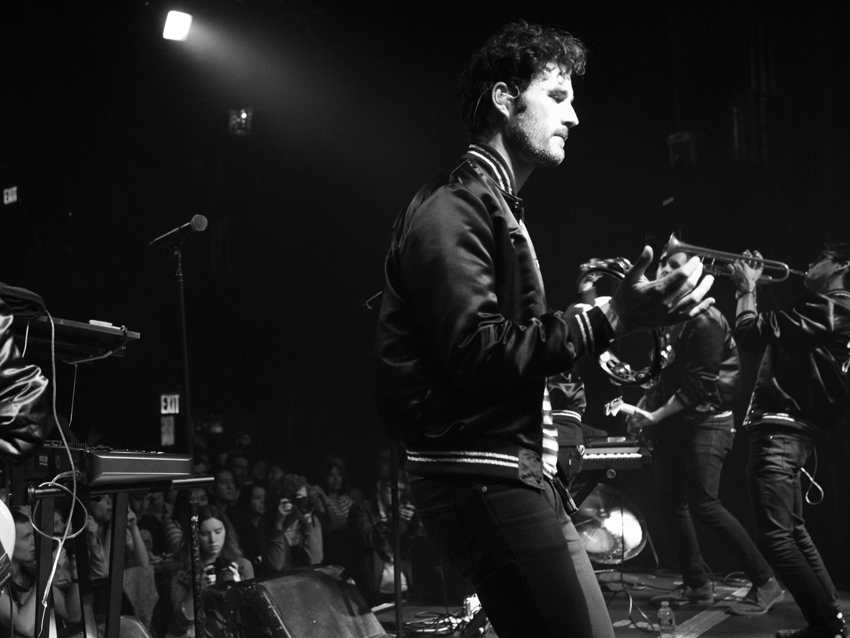
Capital Cities' Ryan Merchant picks 10 essential synth songs
“To me, guitars and synths are equal," says Ryan Merchant of the band Capital Cities. "Both can be used in great ways to make great music, and both can be used in shitty ways to make shitty music. I don’t really care so much what you use, as long as the quality is there.”
Merchant and his Capital Cities partner Sebu Simonian have a giant summer hit on their hands with the song Safe And Sound. Music fans entranced by the track's bountiful hooks have also reveled in its artful blend of synth textures, the majority of which were performed on a Roland Juno-106. "That's kind of the basis of our sound," Merchant says. "It's so big and rich, with a warmth you can't get on anything else."
Describing himself as more of a synth programmer than a player, Merchant also says that he's not a giant gearhead. "I'll go through periods where I'll do some research into what people are using," he says. "I'll read articles on synths or I'll watch a couple of videos and try to learn what somebody did or what they used to create a sound. For the most part, though, I try to just concentrate on my writing and do what I do naturally."
When compiling his list of 10 essential synth songs, Merchant says that he focused on melodies and harmonization, not cutting-edge innovation. "Like anybody else, I find it exciting when an artist breaks new ground," he says. "But to me, it's still about the groove or the aura of a track. The combination of interesting chord progressions with cool, syncopated bass parts also comes into play. Wrap that up with a creative approach to synthesizers, and you have the basis for something that’s going to grab you."
Read Merchant's picks for 10 essential synth songs on the following pages.
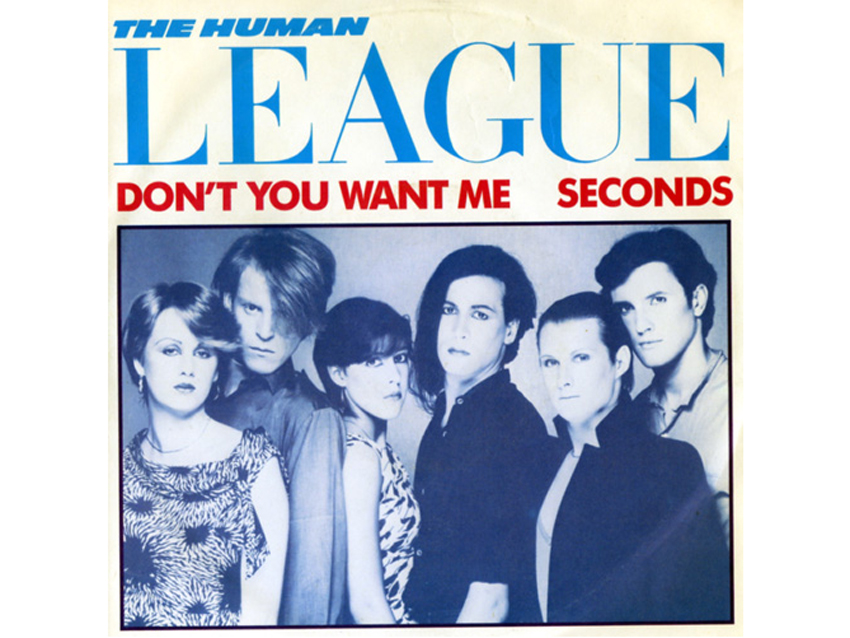
The Human League - Don't You Want Me (1981)
“I love the synth bass that comes in at the beginning of the song. It’s such a great analogue sound – very hooky and solid, bouncy and fat.
“The chorus sticks in your head forever; it’s so well written from top to bottom. I used to play in an ‘80s cover band – we did updated electronic versions of songs from that era – and we were thinking of playing this one. I had to transcribe it note for note. As it turned out, we never ended up doing it, but writing it out gave me a real appreciation for its structure.”
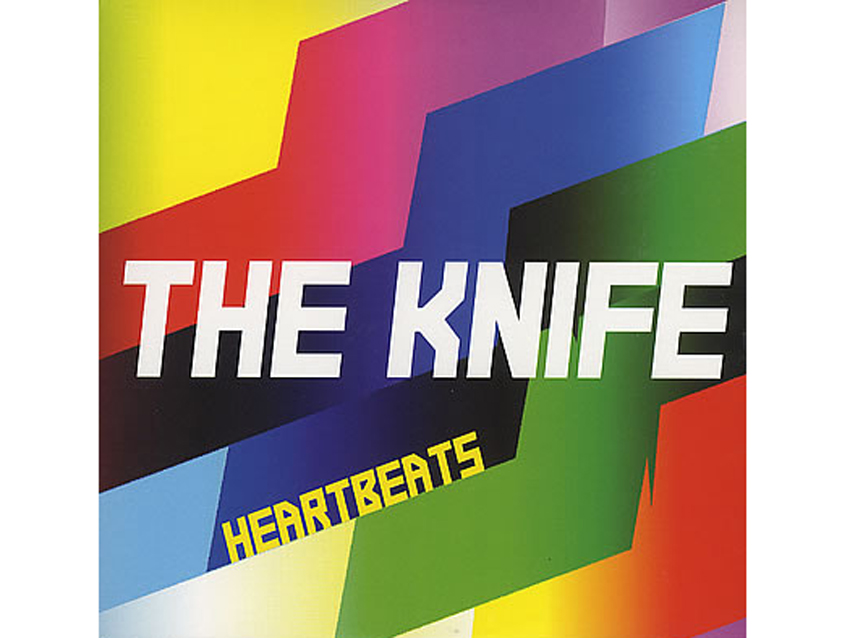
The Knife - Heartbeats (2002)
“A great song. I just love the syncopation of the synth bass – never get tired of that. The entire song is pretty much all synthesizers; it’s very electro, but there’s an emotional depth that’s very appealing. It doesn’t sound robotic.
“The guitarist Jose Gonzalez did a cover of Heartbeats, and it’s a testament to how beautifully written the song is and how effective the synth parts are, the harmonization of the melodies. If a synth song can be translated to a nylon-string acoustic guitar, you know it’s solid.”

Miike Snow - Black & Blue (2009)
“In general, Miike Snow incorporate more organic sounds into the mix, kind of like the way that we do.
“In this song, somewhere in the pre-chorus, there’s a really cool and crazy syncopated bassline from a synth that grabs your attention. I love the way it mixes with the live drums. It’s almost subtle, the way it’s placed underneath everything, but it works.”
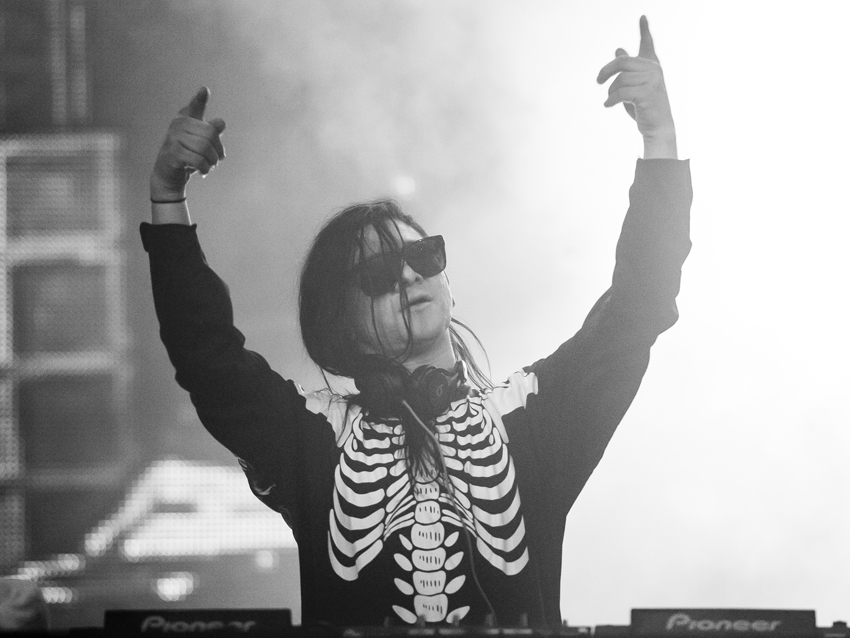
Skillex - Kill Everybody (2010)
“Skrillex is pretty amazing. He gets such strange sounds out of synthesizers – I honestly don’t know how he does it. I know that he uses Massive, which I have messed around with, too. Actually, it’s a bit of a nightmare because there’s so many parameters, and that makes me even more impressed by what he does.
“His music is very aggressive, but he’ll also have these beautifully melodic moments that really stand out. I don’t generally like music that’s all just one thing straight through. Like with metal, I appreciate bands that have some melody with whatever else they’re doing musically.
“We did a mash-up of Kill Everybody. We took the vocals from Safe And Sound, sped them up, put them on the song and re-arranged it. I did a music video for it with all of these clips of kids falling down. That sounds really twisted and horrible, but when you see it with the song, it’s actually pretty funny.”
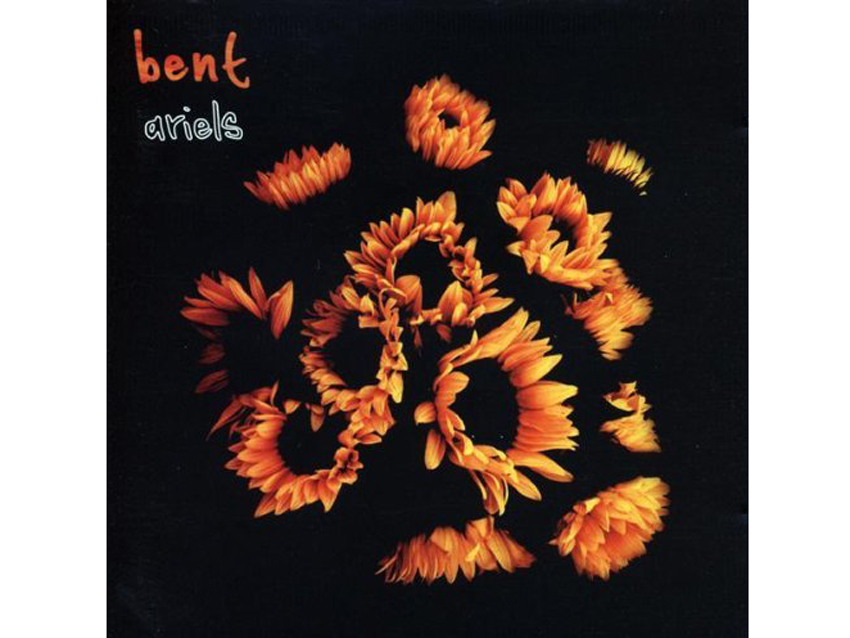
Bent - Exercise 4 (2004)
“I’ve been obsessed with Bent for years. Their first four albums are some of the most incredible things I’ve ever heard – beautiful songwriting and a fantastic mix or organic instruments with synthesizers. I can’t say enough good things about them.
“This song is a totally instrumental synth track with a really nice, slow, funky beat. The synths have reverb added to them, so there’s a spaciousness and a depth that adds a very effective emotional quality to the overall sound.
“I got in touch with Simon Mills, who is one half of Bent. He produced one of the songs on our album, a track called Lazy Lies, which came out great. I’m such a fan, so having the chance to work with Simon was a real honor.”
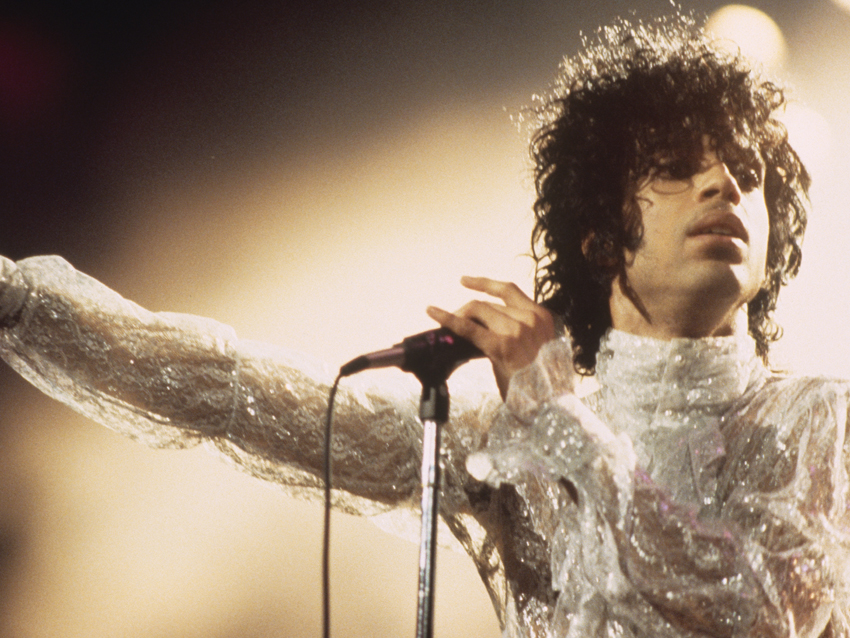
Prince - Erotic City (1984)
“I remember I was at this dance place in LA called Three Clubs, and while I was dancing, Erotic City came on – I had never heard it before. On the chorus, there’s this really cool warbly pad that comes in, and I was so impressed with how amazing it sounded. It inspired me to start the ‘80s cover band and re-create songs like this.
“Prince’s tracks have a lot of strange production. Some of them don’t have actual bass – there will be some weird little synth parts, some funky guitar and drums, and even the drums can sound odd at times. Somehow it all works to create this unique Prince sound.”
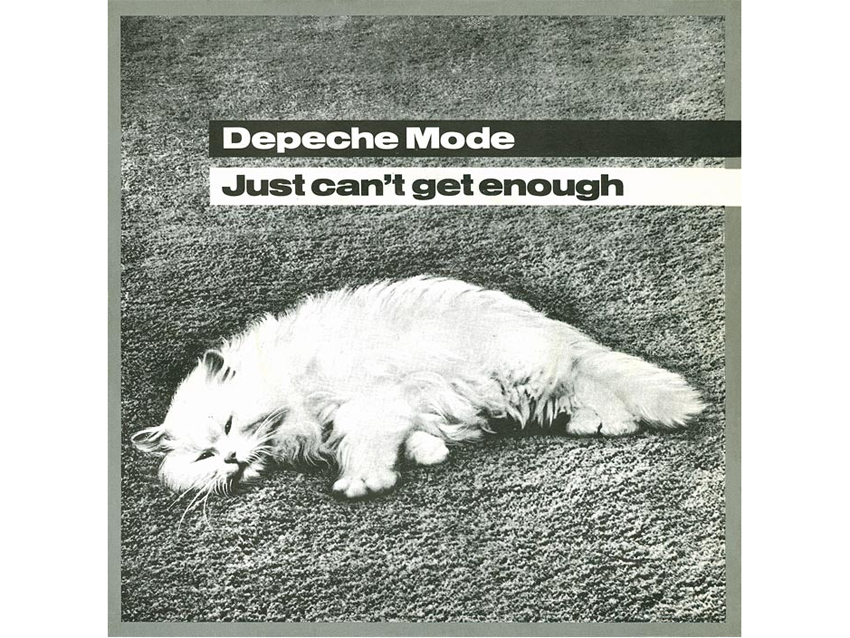
Depeche Mode - Just Can't Get Enough (1981)
“The Depeche Mode album I’m most familiar with is Violator, from 1991, which is a pretty dark record. I was going through some of the other albums, and I started listening to their debut, because I’d never really heard it before. It was so raw and almost amateurish – you could tell that they were just beginning to experiment with programming.
“While I wasn’t crazy about the album per se, when Just Can’t Get Enough came on, I realized what an incredible song it was. I never thought so before; sometimes you have to listen to a song in a particular context or maybe years after it’s a hit to fully appreciate it.
“It has so many cool counter-melodies, with all of these interacting synth parts; there’s no live instrumentation whatsoever. It’s a hit song with a great vocal – you can see why it propelled them into the limelight and basically launched their career.”
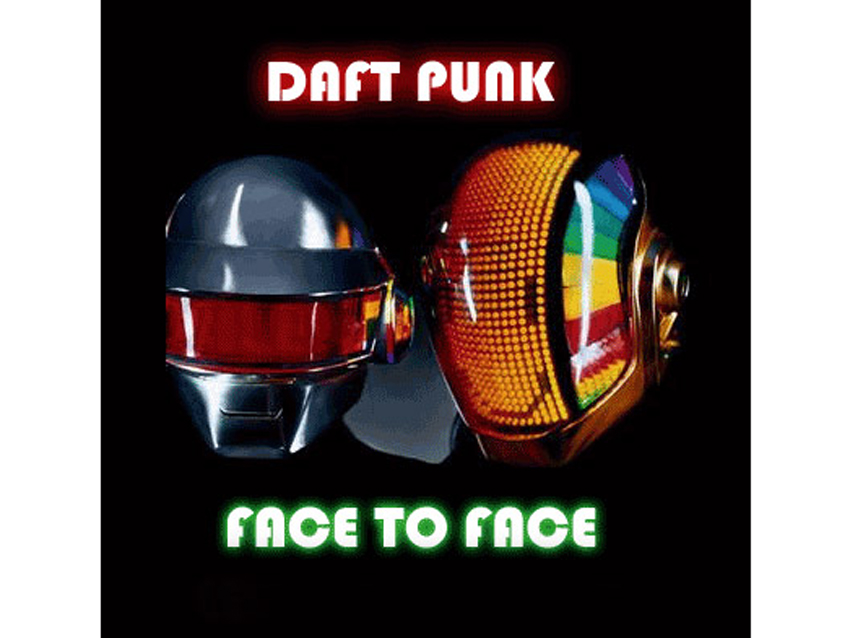
Daft Punk - Face To Face (2003)
“It’s probably my favorite Daft Punk song. There aren’t that many synths on it, but as always, whatever they do is so tasteful and creative. They took Evil Woman by ELO, chopped it up, and that became the basis for Face To Face.
“I love the syncopation of the track and how it goes from Evil Woman into this really clean and beautiful synth bassline. Todd Edwards co-produced and sings on it, and he worked on their new album, too. It’s pretty great.”
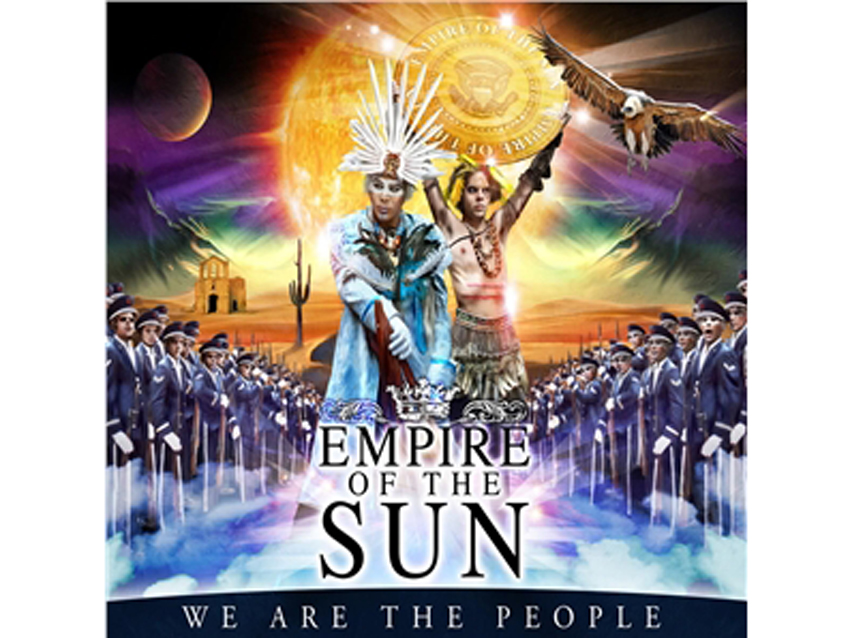
Empire Of The Sun - We Are The People (2008)
“One of the things l love about Empire Of The Sun is how dreamy their synth sounds are. I’m a huge fan of pads. If you listen to our songs, we like to play big rich chords on a synth. Safe And Sound is a good example of that: The basis of that song is the Juno-106, and we’re playing the most massive chords we can think of on it,.
“We Are The People has this incredibly rich harmonization, with an extremely tasteful chord progression and very atmospheric pads in the background. Love all that.”
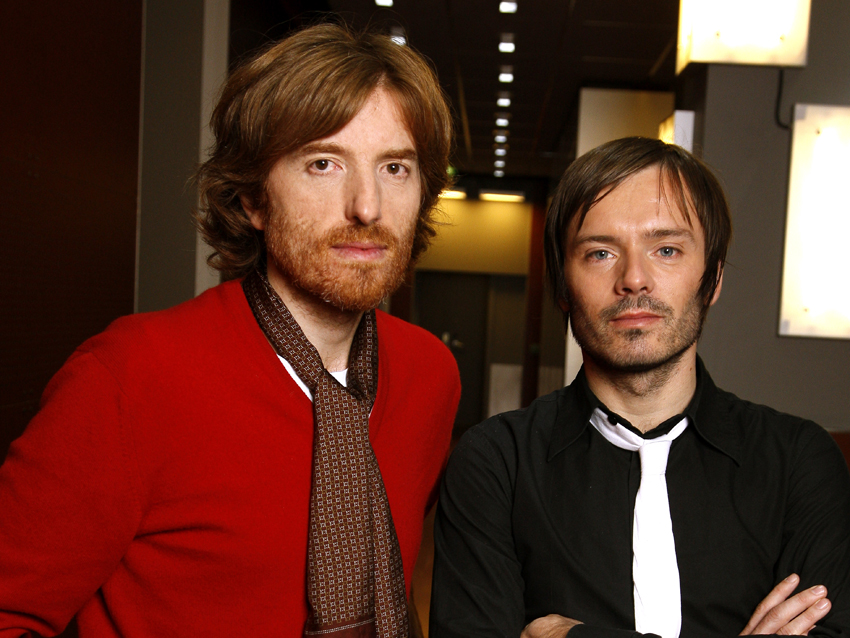
Air - La Femme D'Argent (1998)
“A super-chill track from their first album. There aren’t a ton of synths on it, but in the spots where Air do use synths, they do so in a very sophisticated, cool and classy way. That kind of sums up Air in general: Everything they do is sort of perfect.
“There’s a Hofner bassline that sounds amazing, even in an iconic way, and underneath are some synth elements that are very subtle – they sort of creep in. If you took the synth out, something very important about the vibe would be missing.
“Air are another group that handles the mix of synths and organic instruments really well. Whenever they do an album, they kind of replace their studio and buy all new synths and drum machines – remaking their sound to some extent.”
Joe is a freelance journalist who has, over the past few decades, interviewed hundreds of guitarists for Guitar World, Guitar Player, MusicRadar and Classic Rock. He is also a former editor of Guitar World, contributing writer for Guitar Aficionado and VP of A&R for Island Records. He’s an enthusiastic guitarist, but he’s nowhere near the likes of the people he interviews. Surprisingly, his skills are more suited to the drums. If you need a drummer for your Beatles tribute band, look him up.
